Just In
- 4 hrs ago

- 7 hrs ago

- 11 hrs ago

- 14 hrs ago

Don't Miss
- News
 BRS Chief K Chandrasekhar Rao Slams BJP, Says K Kavitha's Arrest Is Vendetta Politics
BRS Chief K Chandrasekhar Rao Slams BJP, Says K Kavitha's Arrest Is Vendetta Politics - Finance
 LIC New Jeevan Shanti 858 Plan: How To Earn Rs 10,000 Pension Per Month After Retirement? Check Eligibility!
LIC New Jeevan Shanti 858 Plan: How To Earn Rs 10,000 Pension Per Month After Retirement? Check Eligibility! - Sports
 PBKS vs MI, IPL 2024: 'Jasprit Bumrah is the Greatest Match Winner' - Twitter Hails MI Pacer after Amazing Bowling
PBKS vs MI, IPL 2024: 'Jasprit Bumrah is the Greatest Match Winner' - Twitter Hails MI Pacer after Amazing Bowling - Movies
 Yeh Rishta Kya Kehlata Hai Controversy: YRKKH Actor Makes BIG Revelation About Shehzada Dhami: Alag Dhang Se K
Yeh Rishta Kya Kehlata Hai Controversy: YRKKH Actor Makes BIG Revelation About Shehzada Dhami: Alag Dhang Se K - Automobiles
 Aprilia RS 457 Accessories: A Detailed Look At The Prices
Aprilia RS 457 Accessories: A Detailed Look At The Prices - Education
 Karnataka SSLC Result 2024 Soon, Know How to Check Through Website, SMS and Digilocker
Karnataka SSLC Result 2024 Soon, Know How to Check Through Website, SMS and Digilocker - Technology
 Nothing Ear, Ear a With ANC, Up to 42.5 Hours of Battery Launched; Check Price and Availability
Nothing Ear, Ear a With ANC, Up to 42.5 Hours of Battery Launched; Check Price and Availability - Travel
Telangana's Waterfall: A Serene Escape Into Nature's Marvels
Pregnancy And Gynecology: Some Facts
If you are planning to get pregnant, you might need to know certain things like pelvic examination, fertilization, trimesters, foods to eat during pregnancy and so on.
Every married person may need to know certain basics about pregnancy. Whether it is about contraceptive methods, fertilization, pelvic examination, pregnancy food or trimesters, it is better to keep yourself educated.
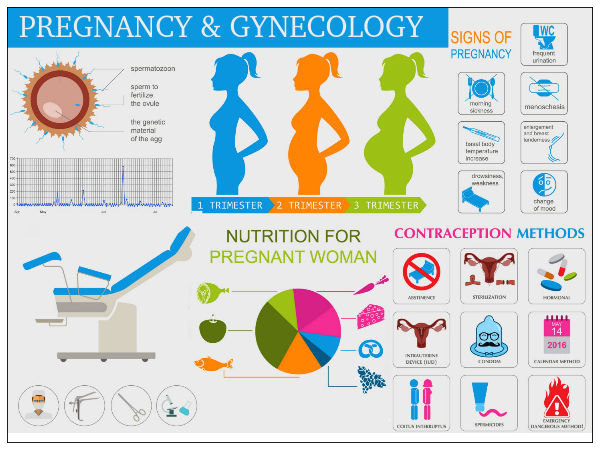
Many hormonal changes occur inside the woman's body and it is not easy to get through the 9 months of pregnancy.
Also Read: Foods To Eat During Pregnancy To Get A Fair Baby
In this post, let us discuss about several aspects of pregnancy and gynecology.
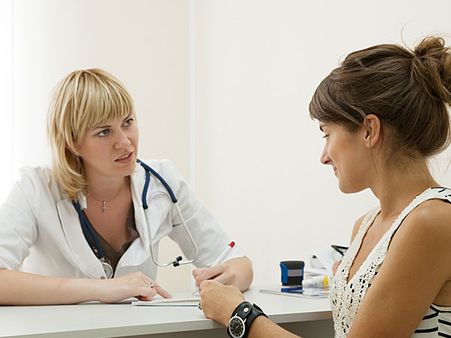
What's A Pelvic Exam?
A pelvic exam is done to identify problems in the reproductive organs. Generally, the uterus, vulva, cervix, ovaries, fallopian tubes, rectum and bladder are tested during the process of this exam.

When Is It Done?
Actually, women need to go for a routine pelvic exam once or twice a year. Pregnant women must surely undergo this test once. This test can also diagnose infections like vaginosis and chlamydia.
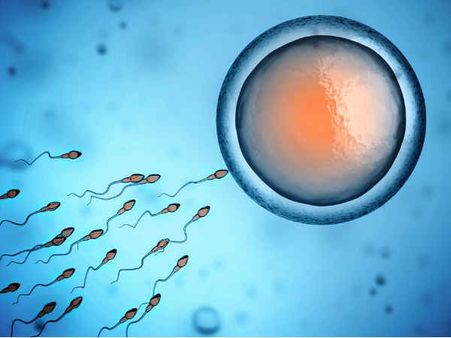
What Is Fertilization?
When the sperm cell gets into the egg it is known as fertilisation. During this process, the DNA of both the man and the woman unite into one single entity called the embryo.
Also Read: 12 Best Foods To Eat During Pregnancy For A Healthy Baby

What Happens After Fertilisation?
The fertilised egg moves from the fallopian tube to the uterus lining. Once it reaches there, the embryo is known as a blastocyst. That is when women are considered pregnant.

What To Eat During Pregnancy?
Well, as a pregnant woman's body goes through many physiological changes, healthy diet is important to cope up with the situation.
Also, some foods are safe and some aren't during pregnancy. Some good foods are dairy (for protein and calcium), legumes (for folate and fiber), sweet potatoes (for beta carotene), salmon if your doctor permits (for omega 3 fatty acids), eggs (for choline), broccoli (for minerals), berries (for anti-oxidants) and whole grains (for some vitamins and carbs).
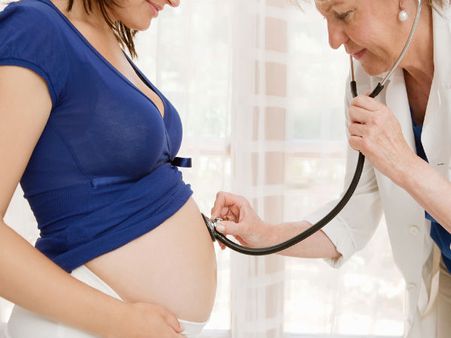
What Are Trimesters?
The 40 week duration of pregnancy is divided into 3 trimesters which are just stages of pregnancy.

First Trimester
When the embryo implants in the uterus, certain hormonal changes occur in the body. By the 8th week, the embryo starts developing some of the body parts.
As it is a very sensitive stage, it is better to stay away from alcohol, contaminated food or radiation exposure. Gradually, by the end of this trimester, the embryo grows into foetus.
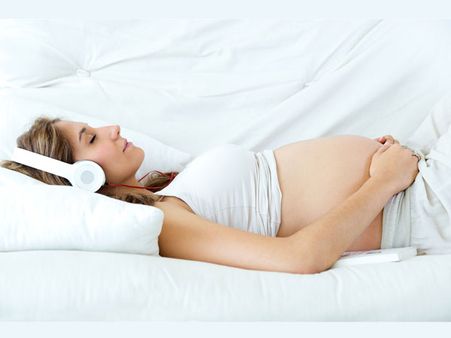
Second Trimester
During this trimester, you will start sensing the movements of the foetus. During this stage, the foetus puts on weight. The length of the foetus would be around 10 inches and weight would be around 650-700 grams.
Also Read: 10 Fruits To Eat During Pregnancy

Third Trimester
This is the last stage of pregnancy. At this stage, all parts of the body will start developing. Also, the foetus will start moving. Towards the end of this stage, the head of the foetus moves down preparing for the birth.
-
 healthSolar Eclipse 2024: Dos and Don'ts for Pregnant Women During Surya Grahan
healthSolar Eclipse 2024: Dos and Don'ts for Pregnant Women During Surya Grahan -
 healthLunar Eclipse 2024: Dos And Don'ts For Pregnant Woman During Chandra Grahan
healthLunar Eclipse 2024: Dos And Don'ts For Pregnant Woman During Chandra Grahan -
 fashionDeepika Padukone-Ranveer Singh Announce Pregnancy: 6 Maternity Outfit Ideas For The Modern Mom-to-Be
fashionDeepika Padukone-Ranveer Singh Announce Pregnancy: 6 Maternity Outfit Ideas For The Modern Mom-to-Be -
 healthLate Singer Sidhu Moose Wala's Mother Is Pregnant Through IVF, Know What It Is And How To Prepare For It
healthLate Singer Sidhu Moose Wala's Mother Is Pregnant Through IVF, Know What It Is And How To Prepare For It -
 insyncVirat Kohli And Anushka Sharma Name Their Baby Boy 'Akaay', Know What This Beautiful Name Means?
insyncVirat Kohli And Anushka Sharma Name Their Baby Boy 'Akaay', Know What This Beautiful Name Means? -
 pregnancy parentingMaternal Health Awareness Day 2024: 15 Foods That Boost Maternal Health
pregnancy parentingMaternal Health Awareness Day 2024: 15 Foods That Boost Maternal Health -
 pregnancy parentingFrom Contractions To Water Breaking: Knowing When It's Time For The Hospital During Pregnancy
pregnancy parentingFrom Contractions To Water Breaking: Knowing When It's Time For The Hospital During Pregnancy -
 pregnancy parentingBirth Control Pills Can Affect This Primary Function In Women: Find Out What
pregnancy parentingBirth Control Pills Can Affect This Primary Function In Women: Find Out What -
 pregnancy parentingTwo Wombs, Four Hearts: US Mom's Extraordinary Double Uterus Pregnancy
pregnancy parentingTwo Wombs, Four Hearts: US Mom's Extraordinary Double Uterus Pregnancy -
 healthExclusive: A Pregnant Mom Can Posses These Maternal, Fetal Health Risks If Exposed To Air Pollution
healthExclusive: A Pregnant Mom Can Posses These Maternal, Fetal Health Risks If Exposed To Air Pollution -
 pregnancy parentingDelhi Air Pollution: Pregnant Women Must Follow These 4 Things!
pregnancy parentingDelhi Air Pollution: Pregnant Women Must Follow These 4 Things! -
 pregnancy parentingDelhi Air Quality Crisis: How Air Pollution Can Affect Unborn And Newborn Babies? Precaution Tips For Pregnant
pregnancy parentingDelhi Air Quality Crisis: How Air Pollution Can Affect Unborn And Newborn Babies? Precaution Tips For Pregnant


 Click it and Unblock the Notifications
Click it and Unblock the Notifications





